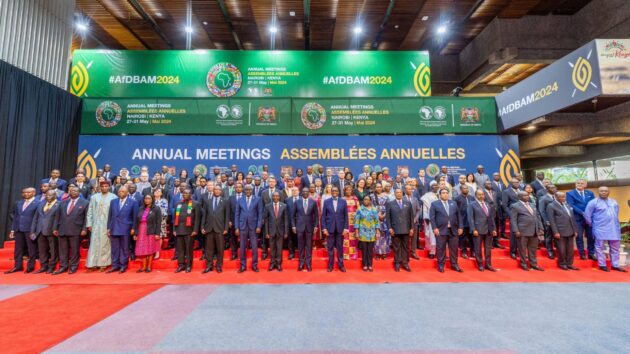
Ruto sustains push to reform global financial architecture » Capital News
NAIROBI, Kenya, May 29 — President William Ruto has called for reforms of the global financial architecture to address destabilising debt and climate vulnerabilities in Africa.
The President said there is a need to address the current situation because countries in the continent are struggling with high financing interest rates, while also dealing with climate shocks and constrained government revenues.
Consequently, he noted, developing countries, including in Africa, struggle to invest in low-carbon and climate-resilient development.
He explained that this financial situation puts at risk climate action and sustainable development goals.
“A better, more responsive, and fairer international development financial architecture is urgently needed. Time is of the essence,” he said.
President Ruto was speaking during the official opening of the 59th Annual Meetings of the African Development Bank Group and the African Development Fund at the Kenyatta International Convention Centre in Nairobi.
Present were Presidents Denis Sassou Nguesso of Congo, Paul Kagame (Rwanda), Emmerson Mnangagwa (Zimbabwe), Hassan Sheikh Mohamud (Somalia) and Mohamed Menfi (President of the Presidential Council of the State of Libya), Burundi Vice-President Prosper Bazombanza and Prime Ministers Saara Kuugongelwa-Amadhila (Namibia) and Ali Lamine Zeine (Niger).
Others present included African Development Bank President Akinwumi Adesina and African Union Commission Chairperson Moussa Faki Mahamat, among others.
President Ruto said Africa needs to raise resources to invest in infrastructure and industrialisation to ensure rapid economic growth.
“However, we face the rigid barrier of a global financial architecture that is fundamentally misaligned with our aspirations,” he said.
He pointed out that transforming the international financial architecture is an imperative that would give Africa a fair chance to turn its immense potential into opportunity, overcome multiple challenges and develop inclusively and sustainably.
President Ruto criticised the tendency of the international financial system to label Africa as a risky borrower despite its vast human, mineral and agricultural potential.
“We are told it is safe to mine in spaces where there is conflict, but it is risky to lend to African economies. What a contradiction?” he said.
He called on African States to work together to unlock barriers to intra-African trade using the African Continental Free Trade Area Agreement.
“We are struggling to look for markets everywhere except in our continent. We must first sell in the market that we have,” he said.
At the same time, President Ruto called for reforms in the African Union to make it fit for purpose.
The President said the African Union Commission should be given the power to “prosecute African economic diplomacy effectively”.
He said the African Union must take charge of the continent’s peace, security and stability and champion solutions to conflicts in the continent.
Additionally, he said the African Union must work with African governments to close the gap in infrastructure.
“The African Union was initially a liberation movement, but we must repurpose and re-engineer it so that it addresses the challenges of the moment,” he said.
The President also said he will be making proposals for the reform of the African Union, including making the organisation more accountable and whose budget is approved by the Pan-African Parliament.
He said the Pan-African Parliament number of MPs should be reduced from the current 275 to 110 members, one woman and one man from each country, to make it more cost-effective.
He also called for the establishment of the African Court of Justice to address justice matters internally.
President Kagame emphasised the need for a new global financial architecture that addresses the continent’s interests.
He urged African leaders to actively pursue African Union reforms to foster continental integration and economic growth.
“We can’t afford to move slowly. It’s urgent and long overdue,” he stated.
President Nguesso praised the African Development Bank for its infrastructural projects but noted that they were not enough to unlock Africa’s full potential.
He stressed the importance of basic infrastructure, such as roads, railways, and waterways, for intra-African trade.
President Mnangagwa advocated for African states to sever colonial ties and collaborate more closely to harness the continent’s resources effectively.
President Mohamud highlighted the severe impact of climate change on Somalia, noting that it has led to droughts followed by the destructive El Niño rains and floods, which have destabilised the country’s socio-economic stability.
Dr Adesina called for reforms in the global financial architecture to better cater to the development needs of Africa, noting that the African Development Bank is already undertaking similar reforms.
To address climate change, Dr Adesina announced that the bank is making significant progress toward its goal of mobilising $25 billion for climate financing.
“Last year, we devoted 45 per cent of our total lending to climate financing,” he said.
National Treasury Cabinet Secretary Njuguna Ndung’u commended the African Development Bank for supporting the continent’s development ambitions, saying it has significantly contributed to the continent’s economic growth, job creation, improved incomes, and better living conditions.
